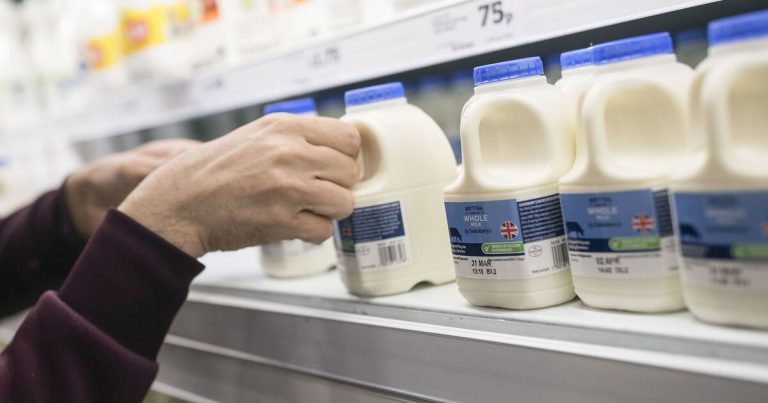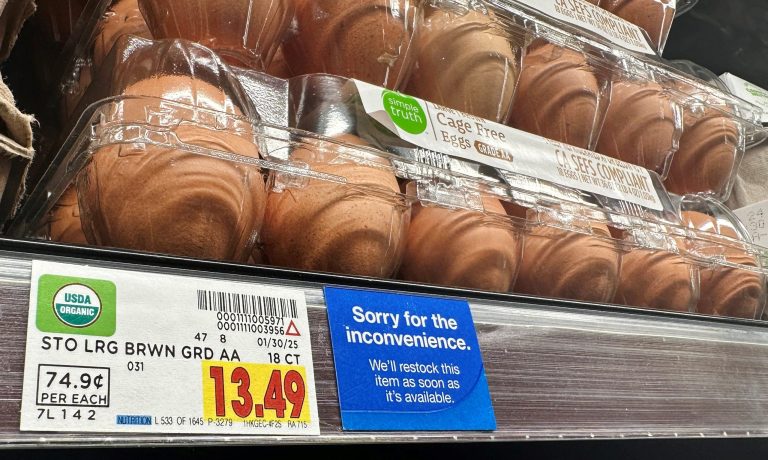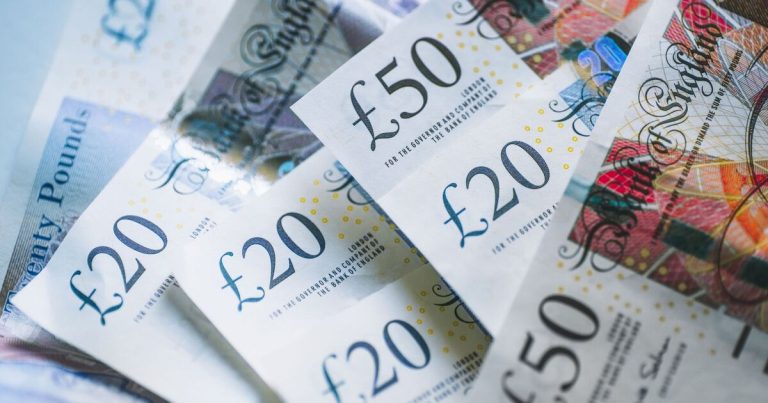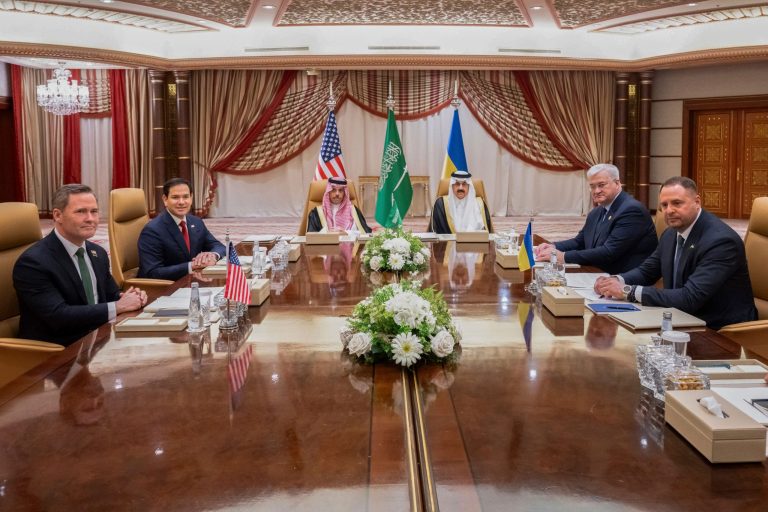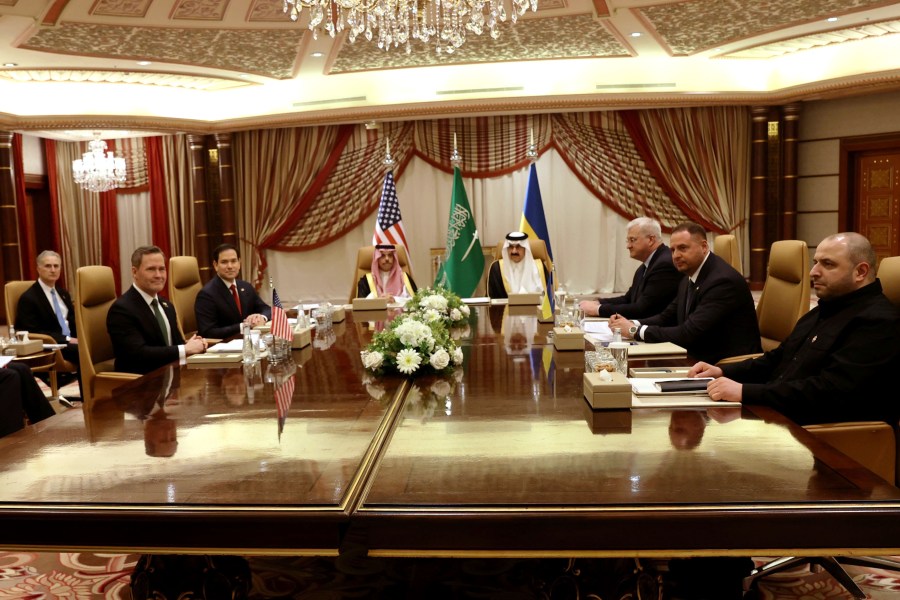
Heritage Foundation research fellow and economist EJ Antoni discusses Biden’s push for electric vehicles, the subsidizing of electric vehicle owners by taxpayers, and consumer concerns over costs.
The Biden administration released long-awaited guidance Friday morning aimed at helping automakers and consumers determine which electric vehicles (EV) are eligible for generous tax credits under the 2022 Inflation Reduction Act (IRA).
The Treasury Department guidance, released in conjunction with the White House Office of Clean Energy Innovation and Implementation and Energy Department, specifically defines the term “foreign entity of concern.” Under the IRA, EVs are prohibited from receiving the $7,500 federal credit if they are assembled with any battery components or critical minerals sourced from such a foreign entity of concern (FEOC) beginning in 2024 and 2025, respectively.
The guidance explains that the federal government interprets an FEOC as an entity “incorporated in, headquartered in and operating within” one of the covered nations: China, Russia, North Korea and Iran. Treasury’s guidance also states that a covered nation’s government is considered an owner of an entity if 25% or more of the entity’s board seats, voting rights, or equity interest are controlled by the government.
“The Inflation Reduction Act has unleashed an investment and manufacturing boom in the United States, and since President Biden enacted the law, ecosystems have developed in communities nationwide to onshore the clean vehicle supply chain,” Treasury Secretary Janet Yellen said in a statement.
CCP-TIED ELECTRIC VEHICLE COMPANY AWARDED MORE THAN $500 MILLION IN TAXPAYER MONEY FOR SECOND US PLANT
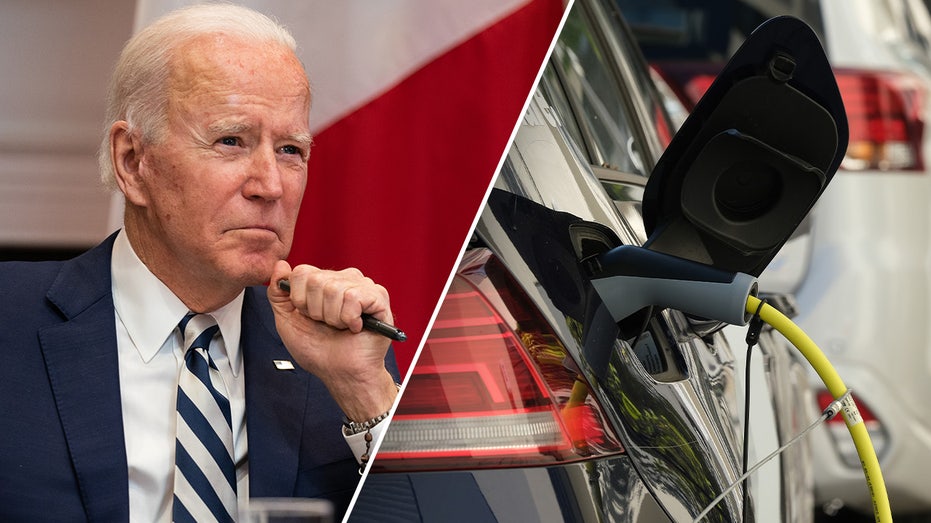
President Biden previously set a goal of ensuring 50% of car purchases are electric by 2030. His administration has pursued aggressive regulations that target future gas-powered cars. (Anna Moneymaker / Pool / Getty Images / File | Sean Gallup / Getty Images / File / Getty Images)
“President Biden entered office determined to reverse the decades-long trend of letting jobs and factories go overseas to China,” added White House clean energy czar John Podesta. “Thanks to the Investing in America agenda and today’s important guidance from Treasury and the Department of Energy, we’re helping ensure that the electric vehicle future will be made in America.”
While the administration touted the guidance as a win in its efforts to bolster the domestic EV industry and onshore EV production, its definition of an FEOC opens the door for Chinese firms linked to China’s government to take advantage of taxpayer subsidies through indirect means such as entering into joint ventures and investments, partnerships and licensing deals with companies in the U.S.
In addition, the Treasury Department created a new multi-year exemption Friday, saying “non-traceable battery materials (and associated constituent materials) may be excluded from the determination of whether a battery cell is FEOC-compliant.” According to the industry group Alliance for Automotive Innovation, without the exemption, the EV tax credit “may have only existed on paper.”
BEIJING-BACKED GREEN ENERGY FIRM IS EXPANDING IN US, POSING SERIOUS NATIONAL SECURITY RISK: REPORT
China currently dominates the EV supply chain, a hurdle to President Biden’s goal to quickly transition the U.S. transportation sector to EVs while increasing the number of U.S. auto industry jobs. Biden set a goal shortly after taking office of ensuring 50% of car purchases are electric by 2030 and his administration has since pursued aggressive regulations targeting future gas-powered cars.
“While the definition of FEOC in the IRA is clear, your formal interpretation of it is crucial to meeting the IRA’s goals of strengthening our domestic mineral security, increasing electric vehicle production and manufacturing within our country, and building stronger partnerships with our reliable allies and partners abroad,” Senate Energy and Natural Resources Committee Chairman Joe Manchin, D-W.Va., wrote to Yellen last month.
“Maintaining the strictest possible standards for FEOCs will safeguard American energy security, encourage domestic industry, and ultimately protect American taxpayer dollars,” continued Manchin, who was a lead author of the IRA. “As you might expect, I am incredibly concerned by recent reports that suggest Chinese battery companies are actively pursuing business opportunities and arrangements, including joint ventures and investments, in South Korea and Morocco to take advantage of the IRA.”
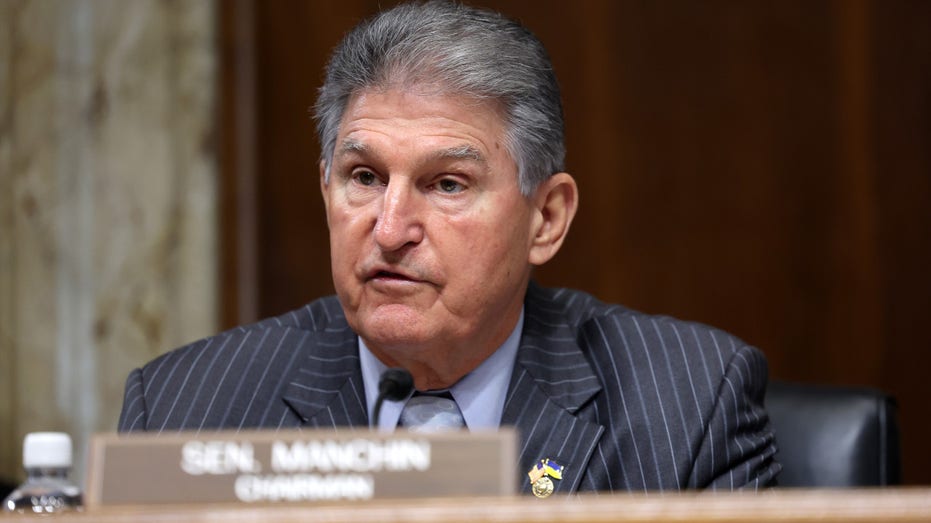
Sen. Joe Manchin, D-W.Va., the chairman of the Senate Energy and Natural Resources Committee and lead architect of the Inflation Reduction Act, has called for the “strictest possible standards for FEOCs.” (Kevin Dietsch/Getty Images / Getty Images)
According to the International Energy Agency, China produces about 75% of all lithium-ion batteries, a key component of EVs, worldwide. The nation also boasts 70% of production capacity for cathodes and 85% for anodes, two key parts of such batteries.
In addition, more than 50% of lithium, cobalt and graphite processing and refining capacity is located in China, the data showed. Those three critical minerals, in addition to copper and nickel, are vital for EV batteries and other green energy technologies. Chinese investment firms have also been aggressive in purchasing stakes in African mines in recent years to ensure a firm control over mineral production.
HOUSE CCP PANEL PROBES BIDEN ADMIN OVER CHINESE GREEN ENERGY PROJECT ON US SOIL
“China holds various percentages of dominance in various levels of the supply chain and various products, elements, etc.,” Andrew Horn, a former senior official in the Office of International Affairs at the Department of Energy, previously told Fox News Digital in an interview. “But essentially, they either control indirectly or directly the mass majority of the global market, including what we in the U.S. consume.”
“They have, essentially, a massive chokehold over the entire market,” said Horn, who also helped craft national critical mineral strategy at the White House. “The U.S. right now has very minimal options.”
In the roughly 15 months since President Biden signed the IRA into law last year, Chinese EV and battery companies have announced projects in the U.S. causing national security experts and Republicans to sound the alarm.
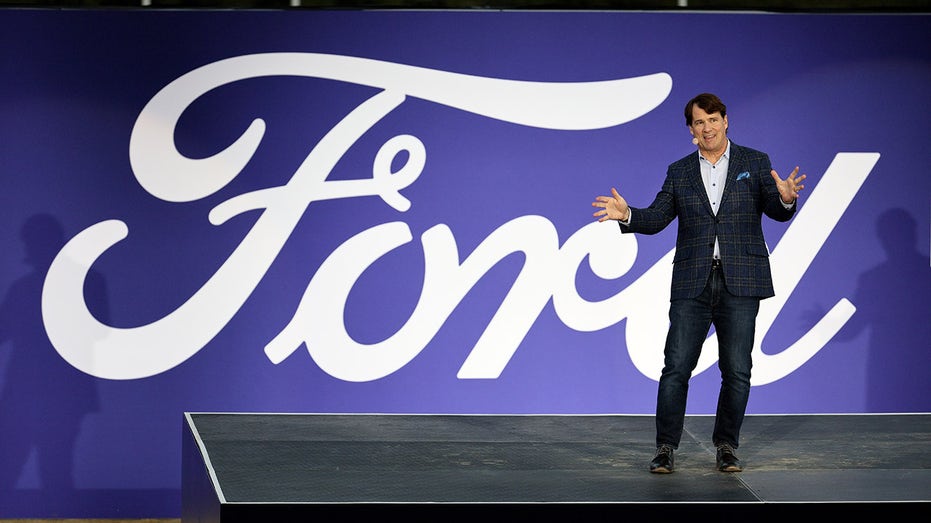
In February, Ford CEO Jim Farley announced his company would develop a EV battery plant in Marshall, Michigan, in conjunction with CATL, a Chinese battery maker linked to the Chinese Communist Party. (Andy Lyons/Getty Images / Getty Images)
For example, earlier this year, Ford Motor Company announced it would invest $3.5 billion to build a new EV battery plant in Marshall, Michigan, using services provided by CATL, a major EV battery firm linked to the Chinese Communist Party. While CATL doesn’t own the facility, it will benefit financially from the arrangement.
And a U.S. subsidiary of the Chinese firm Gotion has announced multiple EV battery component plants in the U.S. over the last 12 months.
MICHIGAN DEMOCRAT SIGNED NDA INVOLVING CCP-TIED COMPANY, DOCUMENTS SHOW, CONTRADICTING HER PAST CLAIMS
“During the Biden-Xi Jinping summit in San Francisco, the priority to strengthen collaboration and have closer ties with the PRC and the CCP was the top line message of Secretary Yellen and others,” former U.S. Ambassador Joseph Cella, the co-founder of the Michigan-China Economic and Security Review Group, told FOX Business. “It would be totally contrary to all of the appeasing deal-making done at the summit, to now make it harder for the PRC and the CCP to not be given a toehold in the EV battery market in the United States.”
“We are looking at this very, very closely,” Cella continued. “There is a grave threat of loopholes, special treatment and exceptions. We must always be vigilant when it comes to these state-based incursions by PRC-based and CCP-tied companies. The Biden administration must never put money over country.”
In addition to the guidance on Friday, Treasury has also outlined other requirements automakers must meet for their EVs to be eligible for tax credits.
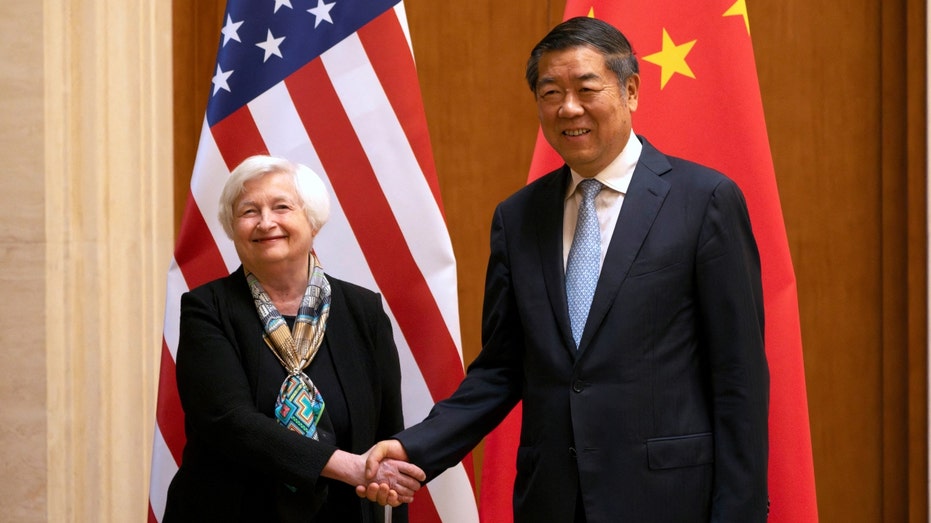
Treasury Secretary Janet Yellen shakes hands with Chinese Vice Premier He Lifeng during a meeting in Beijing, China on July 8, 2023. (Mark Schiefelbein/Pool via REUTERS / Reuters Photos)
Guidance released in late March states 40% of critical minerals contained in an EV’s battery must have been extracted or processed in the U.S. or country the U.S. has a free trade agreement with, beginning in 2023. The share of critical minerals then increases 10% in each subsequent year until 2027, when 80% of minerals must be sourced under the conditions.
Treasury listed Australia, Bahrain, Canada, Chile, Colombia, Costa Rica, Dominican Republic, El Salvador, Guatemala, Honduras, Israel, Jordan, Korea, Mexico, Morocco, Nicaragua, Oman, Panama, Peru, Singapore and Japan as the eligible nations.
And to meet separate battery component requirement, Treasury stated in those rules that, beginning in 2023, at least 50% of an EV’s battery components must be manufactured or assembled in North America. That percentage increases in subsequent years until it reaches 90% in 2028.
CLICK HERE TO READ MORE ON FOX BUSINESS
EVs that, in addition to following Friday’s FEOC rules, meet both the critical mineral and battery component requirements are eligible for the full $7,500 credit. Vehicles that meet just one of those requirements are eligible for a $3,750 credit.
In addition, all EVs must also have undergone final assembly in North America; cost less than $55,000, or $80,000 for larger vehicles; and be purchased by an individual with an annual income of less than $150,000 or a family with an annual income of less than $300,000.

